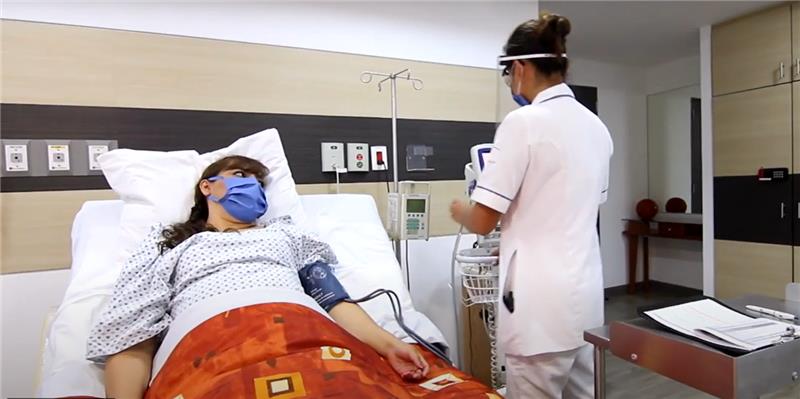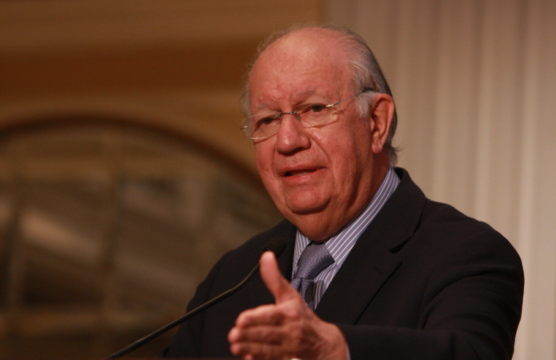Industrial Policy & Innovation in Brazil
Despite an increased presence in the global market, Brazil’s new economic policy shows sign of protectionism and defense of traditional industries.
A Daily Publication of The Dialogue
Latin America and the Caribbean will experience a “tsunami of demand going forward” for treatment of noncommunicable diseases, such as cardiovascular disease and cancer, which have been delayed or missed due to the pandemic, Rifat Atun, a professor of Global Health Systems at Harvard University, said at an Inter-American Dialogue event on Nov. 4. The Covid-19 pandemic has worsened inequality in access to health care in the region, said Atun, who added that the region needs more innovation in health care delivery. What kind of innovation is needed to help ensure that patients in Latin America and the Caribbean get the care they need for noncommunicable diseases? How efficient and effective is public spending on health care currently? How can governments and the private sector better collaborate to maximize the value that is received from health care spending?
Jaana Remes, economist and partner at the McKinsey Global Institute: “At the McKinsey Global Institute, we spent the past year researching what it would take to make the world’s population healthier. We found that prevention is key. By using the tools already at hand, the disease burden in Latin America and the Caribbean could be reduced by 37 percent by 2040. This would result in large economic benefits for the region. We calculate a GDP boost of 8 percent by 2040, adding 0.4 percent growth year-on-year. We found that two-thirds of the reduction in the disease burden would come from prevention, for example, dietary and behavioral changes, education and weight management to reduce cardiovascular disease and diabetes, as well as smoking cessation, which could reduce cancer. Prevention would translate into significant health benefits. For example, a 65-year-old in 2040 could be as healthy as a 55-year-old today, infant mortality would decline, and the health-inequity gap would narrow. That does not mean capturing these benefits would be easy. It requires reorienting thinking about and investing in health and health care delivery, as well as fostering healthier living conditions and changing behavior. It also requires changes in the workplace and economic policy to allow, among other things, increased participation of older people in the work force. However tragic and destructive it has been, Covid-19 has placed society at a unique point in time to prioritize health. Could there be a better moment to invest in health to promote well-being and prosperity?”
Rolf Hoenger, area head for Latin America at Roche Pharma: “Covid-19 has shown that health systems in Latin America are not prepared to meet the needs of their populations, exacerbating the existing challenges that systems face to provide access to quality care for all patients. Health system fragmentation, an absence of quality data and a lack of investment in health and innovation are some of the challenges that hinder effective prevention programs and optimal diagnosis and treatment, generating high out-of-pocket costs and inequities in access to care. The pandemic has clearly shown that health is an essential part of social and economic development and has reinforced the need for more and better investment in health to ensure people’s well-being and promote sustainable health systems. Digital solutions, for example, can support access to quality health data that will allow governments and the private sector to understand where the most pressing needs are to ensure resources are being allocated where they are needed most. This data will also allow us to understand the effectiveness of existing medicines as well as inform the development of future treatments, making investment in innovation more efficient. We have an opportunity today to build on the collaborative spirit we are seeing to promote more public-private partnerships. By joining knowledge, capabilities and resources, we can develop the right solutions to ensure quality care and access to innovations for all patients. At Roche, we want to be part of the solution and invite all stakeholders to have an open line of communication with us, so we continue to identify ways to collaborate.”
Arachu Castro, Samuel Z. Stone Chair of Public Health in Latin America at Tulane University’s School of Public Health and Tropical Medicine: “The Covid-19 pandemic exposes the limitations of Latin American and Caribbean health systems, the strengthening of which cannot continue to wait or depend exclusively on the budgets allocated during the pandemic. The political instability that preceded the outbreak of the pandemic in countries where the population demanded more redistributive and fair social policies, together with the devastating impact of the pandemic, create the ideal conditions for governments to justify spending 6 percent of their GDP on health—the recommendation that the Directing Council of the Pan American Health Organization (PAHO) made in 2014. PAHO also suggests that 30 percent of this budget be allocated to primary health care (PHC). Strong PHC systems can solve, in close proximity to the population, most of their health conditions—including emergencies and noncommunicable diseases—as well as develop health promotion and disease prevention measures, in coordination with specialized health services through reference and counter-reference health systems. In addition to helping to improve the coverage of services more equitably, a solid and quality PHC protects the population from catastrophic health expenses.”
María del Rocío Sáenz Madrigal, former health minister of Costa Rica: “Covid-19 reached Latin America, the most unequal region in the world, amid an unfavorable economic context. The pain and suffering of thousands of people quickly spread throughout the region. This included health workers and showed the deep inequalities in which various population groups live. The foregoing has shown the need to improve living conditions, to consider the social effects on women, to strengthen primary health care, as well as to promote more participation and decision-making based on facts and science. Having diagnostic devices and treatments for everyone, at reasonable and accessible prices, is essential. Patient navigation programs, within health systems, are a nondrug innovation that provides vision and collaboration of peers, NGOs and academia, in the control and monitoring of diseases such as breast cancer. All this can help offer timely, continuous and quality services.”
 The Latin America Advisor features Q&A from leaders in politics, economics, and finance every business day. It is available to members of the Dialogue’s Corporate Program and others by subscription.
The Latin America Advisor features Q&A from leaders in politics, economics, and finance every business day. It is available to members of the Dialogue’s Corporate Program and others by subscription.
Despite an increased presence in the global market, Brazil’s new economic policy shows sign of protectionism and defense of traditional industries.
Latin America inequality gap, economic integration, and infrastructure and education systems were among the issues spotlighted at the XVII Annual CAF Conference.
In the wake of the COP21 global climate talks, governments must shift attention to how they will actually follow through on the commitments made in Paris. One concept is central to achieving that goal – innovation.
 File Photo: Hospital Angeles Mexico.
File Photo: Hospital Angeles Mexico.

 Video
Video